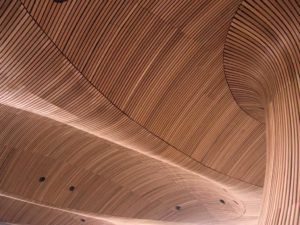The COVID-19 pandemic has had a very profound impact on the California courts and in particular on trials of the Los Angeles Superior Courts, both jury and non-jury. Currently, there are more than 7,000 criminal cases that must be tried to satisfy these defendant’s statutory and constitutional right to a speedy trial. As the Court ramps up operations after the shutdown the resumption of criminal jury trials will be a priority.
The first criminal jury trial held since the shutdown was completed in the first week of September 2020. The court has also implemented optional remote appearance technology which originally had a roll-out schedule of 18 months, but was successfully completed in just 3 months providing remote appearances for all hearings and all case types.
While the Court cannot mandate remote appearances, pursuant to the General Order dated September 10, 2020, parties and counsel are strongly urged to avoid in-person appearances and to make use of technology to appear remotely whenever possible.
Civil Jury Trials and Social Distancing
With the social distancing requirements and protocols, the challenges to holding civil jury trials are quite daunting. A typical civil jury trial with one witness at a time involves a minimum of 23 people, including the Judge, judicial assistant, court reporter, 12 jurors and 2 alternates, plaintiff, plaintiff’s counsel, defendant, defendant’s counsel and witness.
Multiparty cases and complex real estate matters, with multiple defendants and cross-defendants will significantly increase the number of participants. Remote appearances in civil jury trials creates logistical and social distancing issues relating to jury selection, jury deliberations and the handling of evidence, not to mention the challenges of safely managing a minimum of 23 people a day for a multi-day trial.
This poses severe limitations on the number and pace of civil jury trials in the 38 courts that make up the Los Angeles County Superior Court system. Court hearings and calendars are being staggered to limit the number of persons in the courthouse and in each individual courtroom at a time. Civil jury trials and all related hearings will inevitably be staggered as well.
Civil Jury Trials Backlog and Scheduling
In addition to the backlog of criminal jury trials, civil jury trials have been repeatedly continued, postponed and rescheduled, including a rescheduling of all unlimited civil jury trials scheduled from September 9, 2020 to October 8, 2020, in the most recent September 10, 2020, General Order.
Suffice to say, although trial dates are being assigned, most civil cases cannot realistically be expected to proceed to a jury trial in the near future. However, the trial setting is a valuable date that frames the conduct of discovery, expert discovery, expert witness designations. Discovery and expert discovery cut offs still apply, and all discovery and expert investigation still moves forward, can be conducted remotely and in most cases completely, providing a framework and a basis for mediation and settlement.
For parties concerned about the conduct of depositions and desiring to proceed remotely, Emergency Rule 11, at the election of the deponent or the deposing party, they can opt to appear remotely and are not required to be present with a deposition officer at the time of the deposition.
Strategies for Resolving Cases in the COVID World
The strategy under these circumstances is to expect the trial to be delayed to 2022 or 2023, file your case as soon as possible to preserve your place in line and enable you to commence discovery as soon as practical. Pursue discovery and mediation as if the trial date is real, and utilize the discovery time-frame to complete discovery, and develop the case, and utilize discovery as a framework for mediation, conducted remotely, to pursue settlement as you would in on a normal time-line.
One should also consider the alternatives to a jury trial, including, of course, the primary alternative, which is a negotiated settlement obtained through negotiation, mediation and various forms of alternative dispute resolution, and the option of a bench trial or private arbitration. Both of the latter alternatives would still face significant delays as well as the challenges of putting on a trial or arbitration safely, remotely and/or with proper social distancing.
The costs of arbitration are another factor, as is the advantage, security and certainty of being able to set, keep and rely on a date and time frame that is set by a private neutral arbitrator, versus the uncertainty of any trial dates, even for a bench trial, in the Los Angeles Superior courts. It appears, as has been the case even before the pandemic, that the best strategy and approach to all civil litigation is to aggressively pursue discovery and mediation.
Every litigant wants the case to be resolved. Statistically, well over 90% of all civil cases are resolved through settlement. For the small percentage of cases that require a trial, they still undergo a very rigorous effort to mediate and settle, and if a trial is necessary, then the effort will be well spent, but know this, your trial isn’t going to happen soon.
So, the best advice for resolving matters in the COVID landscape: file the action, conduct your discovery, develop the case, retain your experts and prepare, engage in settlement negotiations and mediation, and use the mediation process as an ongoing feature and element of your strategy, and prepare the case for trial, then, once prepared, patiently and constantly reassess your settlement prospects, and pursue private adjudication or arbitration alternatives if they suit your clients’ needs and goals.
Also, when settlement negotiations reach an impasse, pause and gather information, and see if the passage of time, or a shift in the evidence or perspective on the case changes, and be willing to allow for a break in the negotiations, and resume them later. It’s frankly simple, you either settle each case or try it. And, if you must try the case, be prepared to do so while pursuing settlement in parallel.
Norton & Associates: Strategic Litigation in the COVID World
For a consultation and evaluation of construction defects and real estate litigation issues, including strategies for the present and the future with COVID, contact Timothy Norton of Norton & Associates today at 310.706.4134, or visit us on the web at constuctiondefect.com to make an appointment.


